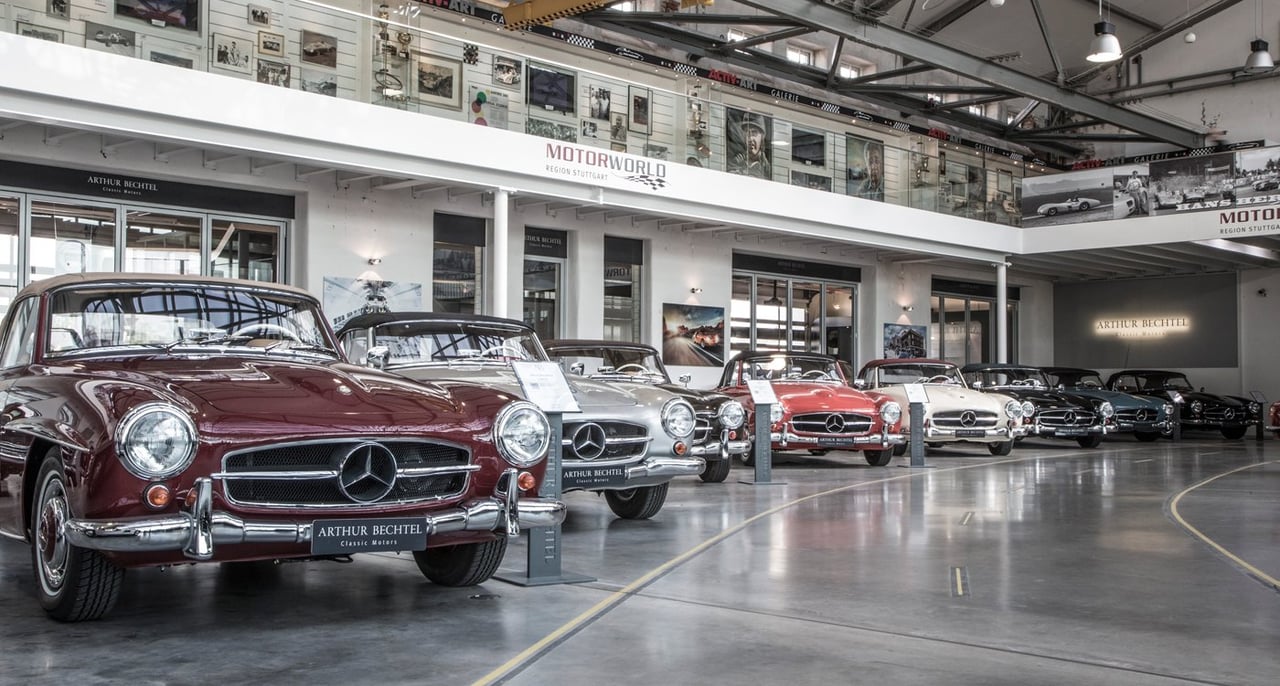
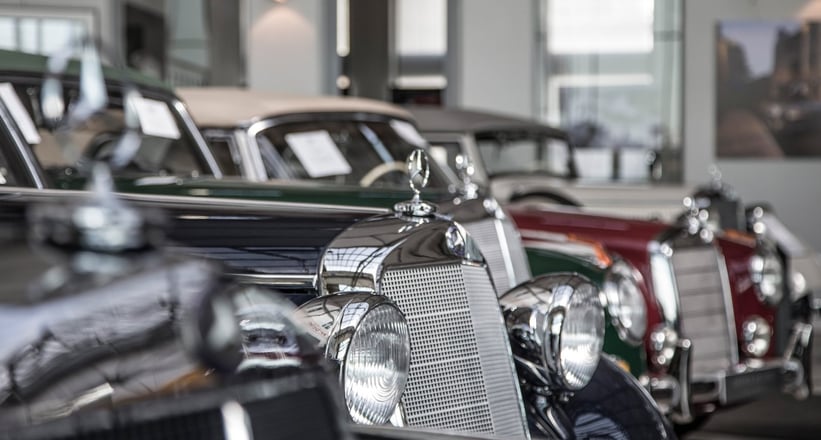
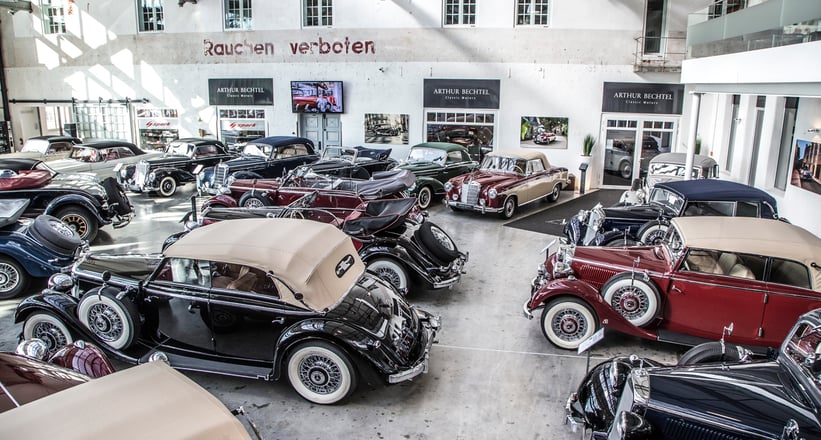
For Arthur, it was a natural decision to open a classic car dealership in Stuttgart, an area that breathes automotive history. It’s small wonder, then, that his spacious and elegant showroom is filled with predominantly Swabian beauties, such as the Mercedes-Benz Cabriolet 190 SL Roadster and the Porsche 356 Pre-A Speedster. We spoke with his Tim about how his father passed his passion down the family tree...
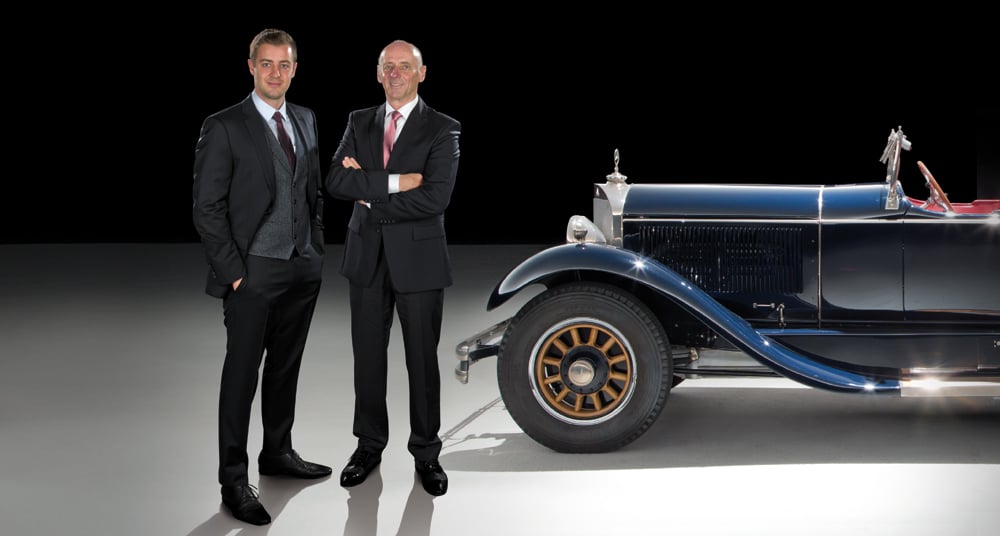
What is your earliest automotive memory?
My earliest memory is from when I was around 16 years old. At that time, I had begun to recognise and appreciate my father’s showroom filled with classic cars. After a subsequent test-drive in a red Jaguar E-type Series 1, I was completely hooked.
How did you turn your passion into a career?
Being my father’s son, I was ‘infected’ with the classic car bug very early on, but it was only ever a passion as first. My plans to study abroad collapsed, however, and I stumbled into the family business. I’m glad that I’ve come this far, and cannot think of anything I’d rather be doing.
What fascinates you about cars?
For me, it’s the feeling of boundless freedom that goes hand-in-hand with cars, not to mention the different character each vehicle possesses, be it via interesting features or unique back-story.
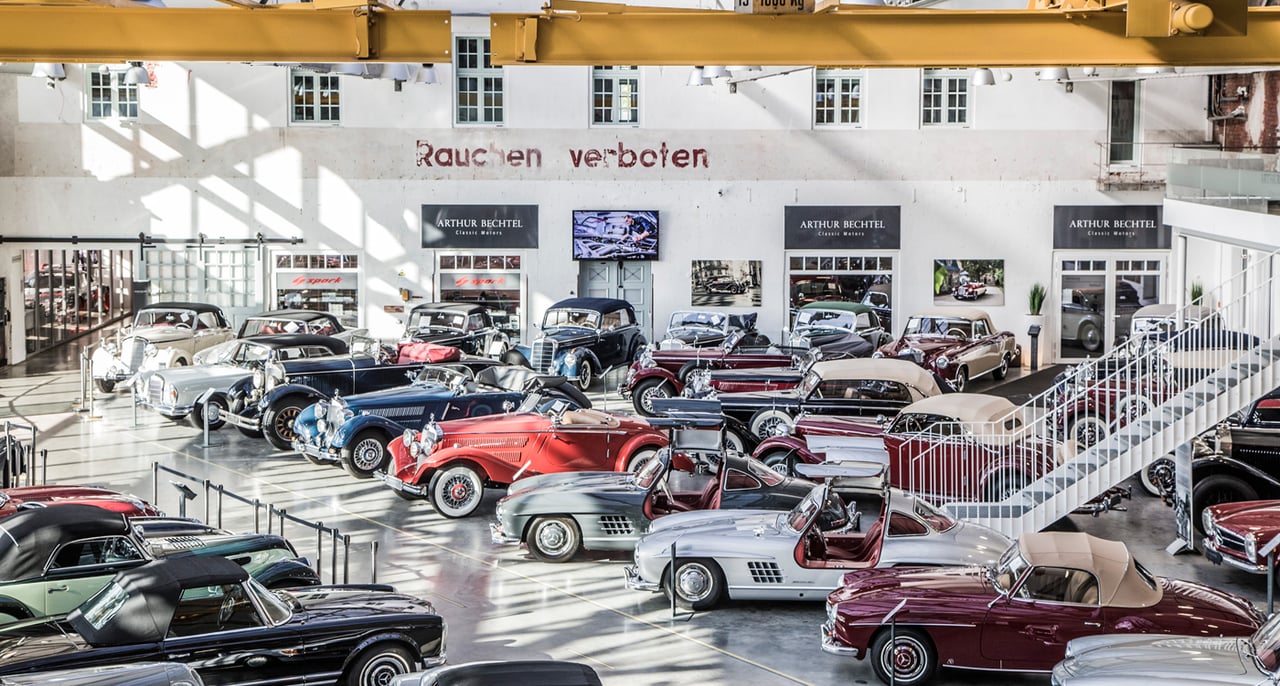
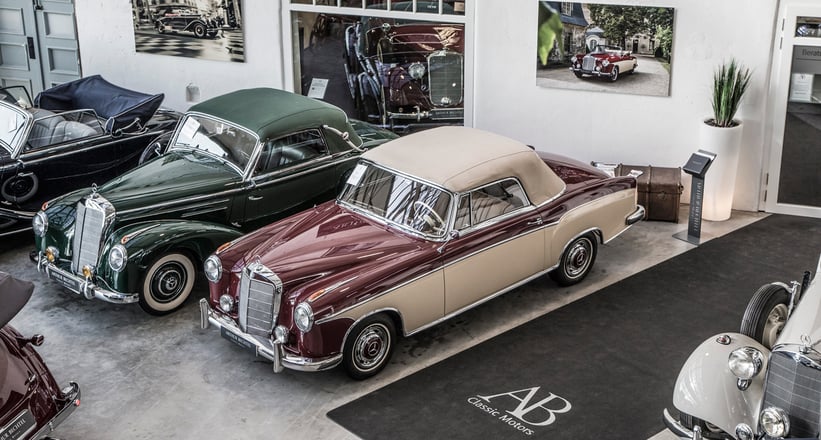
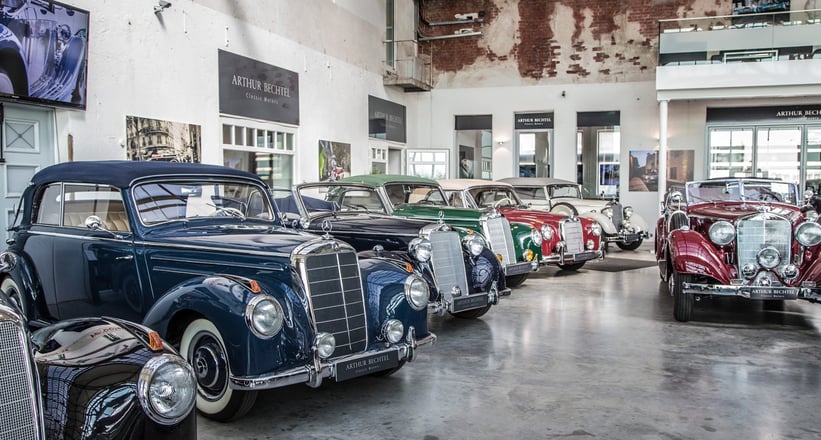
What criteria must a car in your inventory fulfil?
The cars we stock are primarily chosen for their character and if we feel they’re worth preserving. Of course, this is also guided by demand from our customers, and which manufacturers and models we’d like to deal with. A car produced in small numbers will always capture our attention – for example, we currently have a 1955 Mercedes-Benz 220 Coupe type W187 for sale, one of just 85 that left the factory. We also have a 1924 Mercedes 630K, with a unique body by Murphy. It’s really quite special!
Are there brands in which you tend to specialise?
Our heart beats for vehicles from Mercedes-Benz and Porsche, not least because of our regional roots. My father actually founded the business as a Jaguar specialist, and we’re excited by most European sporting classics from the 1950s, ’60s and ’70s.
What attributes must a classic possess to be sold by Arthur Bechtel?
If a vehicle has been restored to the highest level by a renowned European specialist, the chances are we’ll happily put in an offer. We also love cars with outstanding histories, and a little patina that helps to add character. Ultimately, it’s always an individual decision.
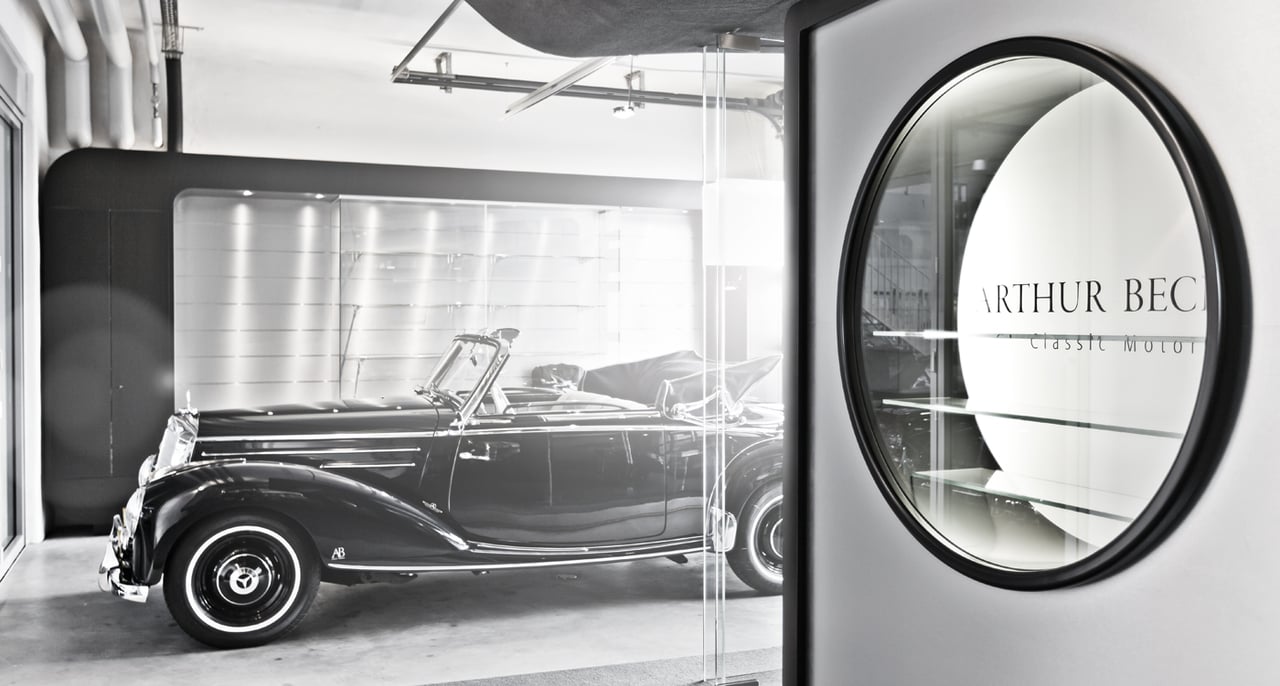
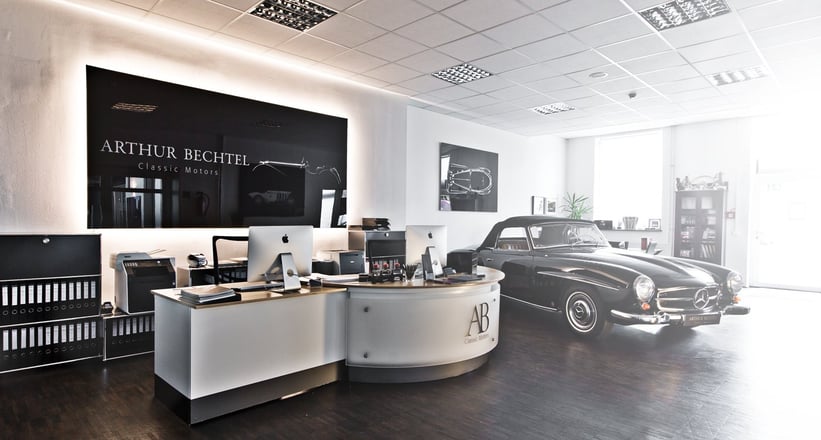
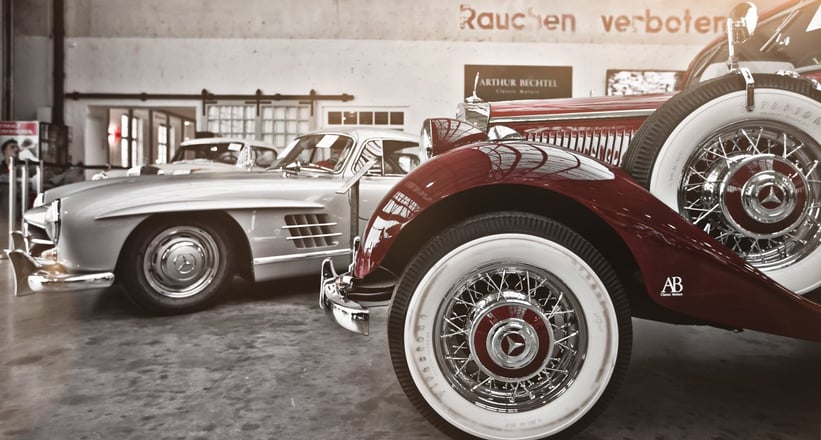
What is important in your profession?
Simply put, discretion, trust and direct personal contact with customers. We’re always looking to develop and improve – we do not sell these cars as everyday mobility, rather as chances to experience the finest moments in automotive history.
What can your customers expect from you?
It’s about more than classic cars. Our customers can expect an inclusive package, with services ranging from ordering a simple valve, through to hotel booking. We’re like a concierge service, and my father and I can say with pride that our customers buy more than just a car from us. Sometimes it feels like we make the impossible possible. One time, we had a businessman who was looking for a special birthday present for his wife. He opted for a Mercedes-Benz 190 SL Roadster, but he did not have time to inspect the car before he bought it. “My pilot lands in Stuttgart at 16.30,” he called to say, “could you bring the car to the runway?” We obliged, and the deal was done right there on the tarmac. After a brief stop in Monaco for the birthday party, the car now resides in Beverly Hills.
The business has changed dramatically in recent years – what do you expect from the future?
The markets for procurement and sales have become so much more international over the past few years. Our customers now come from around the world, and their expertise has risen sharply, thus increasing demand for our products and services. There are many competitors – particularly newcomers – frolicking on the market, offering poor quality products at ambitious prices. Our challenge is to separate ourselves from these companies by continuously raising the quality of what we do.
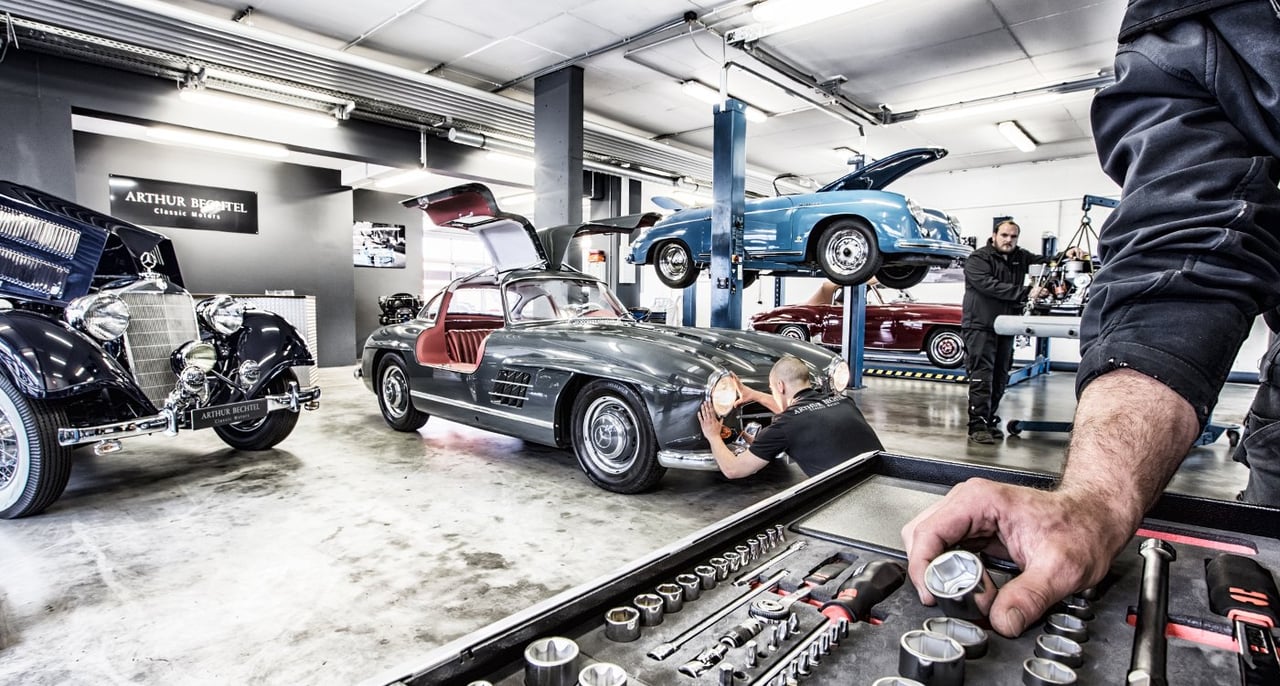
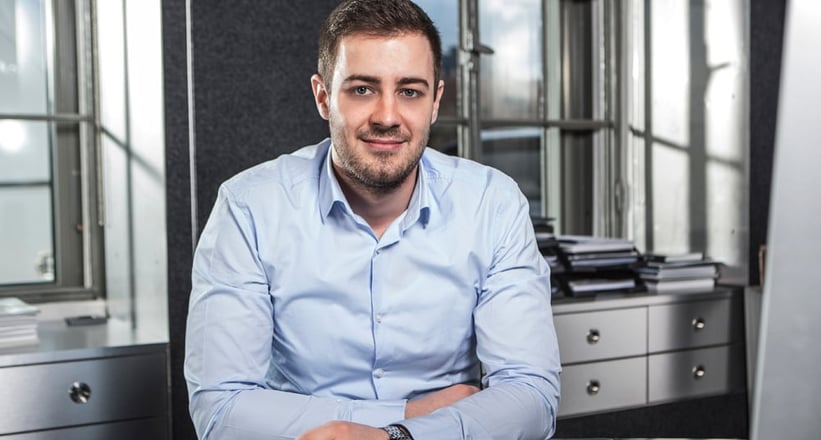
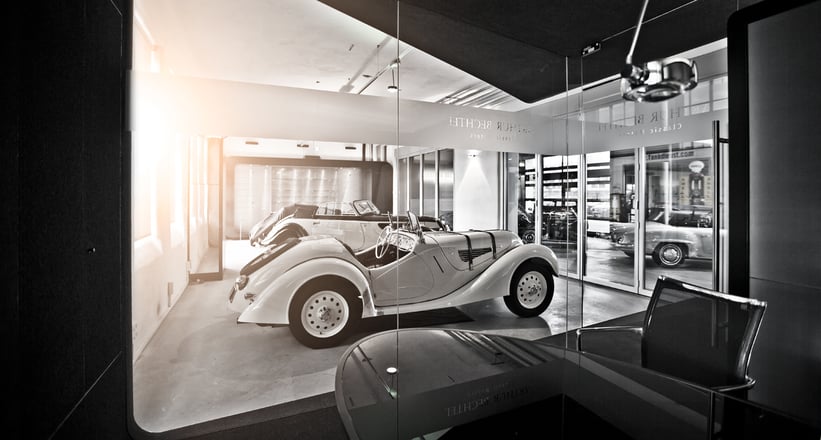
Is there a car that you’d rather keep for yourself?
Luckily my tastes and interests are often changing. My emotional attachment to a car usually builds during the process of buying, restoring and selling. I love it when we find vehicles in a dilapidated state, and restore them to their former glory. There’s no question that one feels sad when a car leaves us, but the excitement of its new owner more than compensates.
What do you drive at the weekend?
It’s usually a fast all-rounder that, though lacking emotion, is vital for all the travelling that I do. I’m more of a passenger when I sit behind the wheel. I would love to ‘slow down’ with a convertible from the 1950s, however.
















